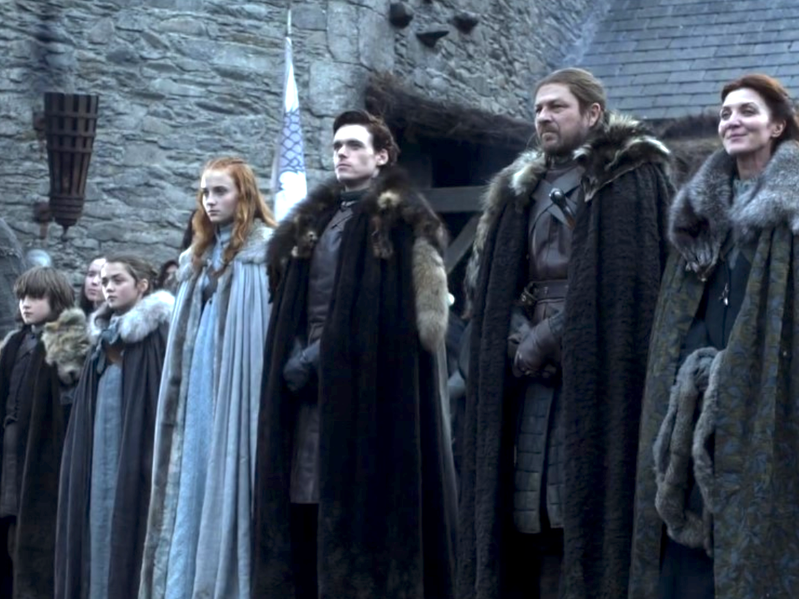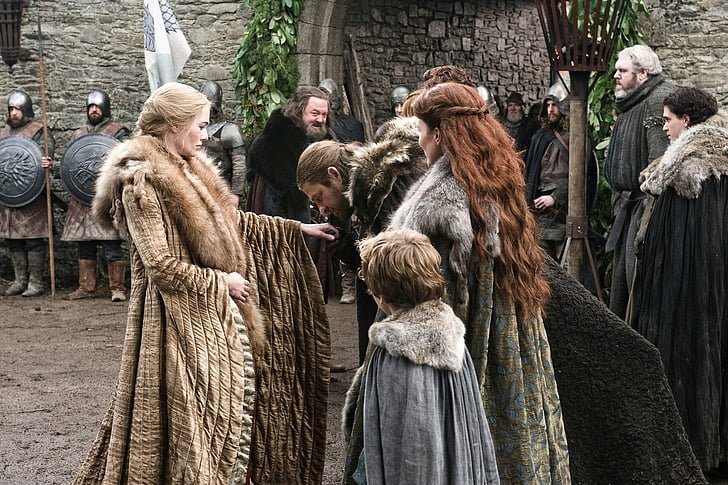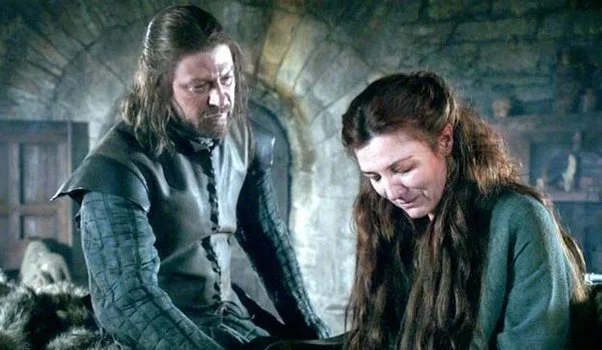Character Craft: Ned Stark
Characters are the pulse which gives a story life. This is why character is a point of craft that writers continually return to. What makes a great character? How are great characters portrayed? What techniques do writers use to make us fall for characters?
In this new series, I’m examining great characters in literature, film, and television, the qualities that make them memorable, and the techniques writers use to bring them to life.
One of the first properties I thought of for this series was A Song of Ice and Fire. Arguably, George R.R. Martin’s characters are what make this series so remarkable. It’s difficult to single out just one great character.
(Beware: Spoilers ahead)
The other thing I think Martin does magnificently is he subverts a lot of story conventions. In his series, the good guys don’t always prevail. In fact, in the start of the series, they’re often outwitted by a host of conniving antagonists. The first instance was such an unforgettable shock, so today we’re looking at the one and only Ned Stark.
Reader’s Note: I’m disinclined to re-read the first book, especially since the series will likely never be finished (yes, George, we’re salty in the House of Evelyn). So, we’re looking at the first episodes of the HBO series for this.
Characterization Through Adjacent Characters
Ned is framed by his family. We meet him as Bran is practicing archery with Jon, who informs Bran their father is watching and encourages him to try again. Immediately, we know that Ned’s children respect and admire him, and aim to make him proud. Later, a
fter Ned has executed a man and Bran has watched, Ned takes him aside to explain, delivering a piece of dialogue that embodies who Ned is: “The man who passes the sentence should swing the sword.”
Ned doesn’t mince words even though Bran is young. He sees value in helping a young child understand the world and in teaching his children lessons about things as complex as honor and duty.
On the return home, they come across a pack of direwolf pups. At first, he wants to put them out of their misery, but his children appeal to his mercy. He’s a reasonable father rather than a tyrannical one, allowing his choices to be swayed by his children.
Within the first half of the first episode, we know he’s inarguably a good father. What could be more likable in a man? We know his children love, admire, and respect him. Therefore, we do too.
The Only Good Man in the Kingdom
One of the most significant aspects of Ned’s characterization, in my opinion, is the juxtaposition between his character and the other major players in the realm. Martin has established with surgical precision that Ned is honorable, duty-bound, and a good, loving father. Viewers of the later seasons know that Cersei is a complicated woman who loves her children deeply, but that isn’t the Cersei we meet.
The Cersei we meet is a conniving woman who plots beside the deathbed of a man who was like a father to her king husband. She’s scorned publicly by her husband and has lost a baby, yes. There’s some empathy established early on, but by the end of the first episodes we also know she’s having a sexual affair with her twin brother and is so hellbent on maintaining her affair in secret, she’s willing to kill a ten-year-old child in order to do so. She’s also so manipulative, that she feigns to console the mother of the child she attempted to kill.
Likewise, Jamie Lannister has a redemption arc over the course of the series and viewers get to see the ways in which his toxic affair with his sister has corrupted him. But that isn’t how he’s characterized early on. Instead, he’s characterized as arrogant, abrasive (picking on Jon Snow at one point for no apparent reason), power-hungry, and also willing to kill a ten-year-old child to cover up his incestuous affair. In comparison to Ned, Cersei and Jamie aren’t complicated antagonists, they’re monsters.
Even the other protagonists in the series are deeply flawed comparatively. When we first meet Tyrion, he’s a womanizing drunk. Witty, yes, but he doesn’t use his wits for the benefit of anyone but himself. He does bestow wisdom on Jon Snow, even if unkindly so, but in contrast to Ned, he doesn’t exactly seem like a good man. A fun one, sure. Would you want to get a drink with Tyrion? Hell yeah. Would you want him raising your children? Probably not.
Similarly, King Robert is portrayed as a philandering drunk willing to publicly humiliate his wife. He’s complicated by his grief and enduring love for Ned’s dead sister, by his humor, and by seeming relatively down-to-earth for a king, but those aspects don’t redeem his negative qualities.
As all of these characters converge at Winterfell, Ned is arguably the only good man in the room. This characterization persists when he travels to King’s Landing and meets more conniving characters, all involved in intrigue.
He Chose… Poorly
In the first episode, Ned is portrayed as a good man and a good father, but by the end of the second episode, his character is thickened.
His goals are brought into conflict. Ned is an honorable man bound to duty. For a long time, his two duties have been in harmony: his duty to his family and his duty to the realm.
Then, he’s asked to be King Robert’s First Hand. His wife, Catelyn, doesn’t want him to accept, and understandably so. She doesn’t want him to leave her for King’s Landing. When Bran is pushed and enters a coma in the second episode, the conflict between family and kingdom deepens.
His family needs him, yet he chooses his duty to the kingdom. He says he doesn’t have a choice, but he doesn’t put up much of a resistance. He’s doing what he believes to be the right thing, but for the first time we see that his sense of honor and duty can mislead him.
We also learn that this isn’t the first time he’s chosen poorly. Jon is his bastard son he fathered the last time he left Catelyn in the name of the realm. When he discusses the subject with King Robert, he shows clear remorse and shame as he’s never revealed the mother’s identity. This is his emotional wound. He’s an honorable man haunted by his past dishonor (at least that’s what we’re led to believe).
Takeaways:
A large aspect of characterization occurs through other characters. How do other characters perceive your protagonist? A protagonist telling readers they’re admired and respected by people is a lot different than a whole cast of characters demonstrating their admiration and respect.
Characters need contrast. If this series had been filled with a handful of good characters who always did what they thought was right, Ned’s character wouldn’t have been nearly as impactful. We wouldn’t have rooted for him so hard or been so devastated when he didn’t prevail. Martin included a spectrum of personalities for Ned to contrast with.
Ned operates around a single value: duty. But just like real people, Ned’s duty is bound to a variety of different subjects. How those various duties are brought into conflict is the crux of his story. This is an epic fantasy, so his duty to his family and his kingdom were the focal conflict. If it had been a family drama, it might have been his duty between competing family members. So, the questions to consider are: What is your character’s operating value? And how does that value position them to make choices that tear their lives apart?
Nobody is perfect, not even Ned. EVERY character has an emotional wound. Emotional wounds are often backstories that lead to character revelations later on. They can complicate a character, but also thicken plots like Martin’s revelation with Ned’s emotional wound does many seasons later. (More incest, yay.)
That’s it for today! I’ve been collecting a list characters via Twitter for this series so if there’s someone you want to see an examination of, let me know in the comments!



